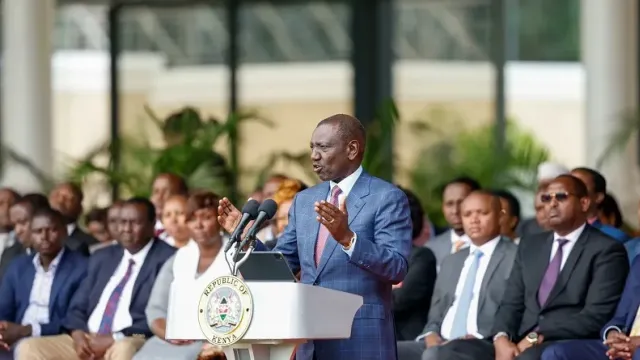Kenya's business activity dips to lowest since February

Kenya's business activity dips to lowest since February
Business activity across Kenya nosedived in June as a nationwide revolt against the Finance Bill compounded prevailing tough economic challenges, further driving down trade.
In June, Stanbic Bank's headline PMI slipped below the 50 neutral mark to 47.2, reflecting a solid worsening in the health of the Kenyan private sector activity.
“After two months of increased purchasing activity by firms, there was a dip in purchasing quantities and inventories because of reduced sales in several sectors, namely construction, agriculture, wholesale, and retail," explained Christopher Legilisho, Economist at Standard Bank.
“Input prices, purchase prices, and output prices recorded a mild increase in anticipation of the increased taxes proposed in the Finance Bill 2024. However, a stronger exchange rate and lower pump prices managed to restrain costs," he added.
The decline in June was the sharpest recorded in seven months, with May having posted highest PMI at 51.8. Kenya's private business environment posted solid expansion in April and May.
June's downturn was, however, softened by a jump in fresh orders reported across manufacturing industries, the report noted.
Read also: Jobs: private firms maintain five-month growth trend
Job creation
"Despite the recent upheaval, it was notable that job creation improved for a sixth month running as firms increased capacity despite the dip in overall activity. However, business optimism for the year ahead remains fragile.”
Stanbic said higher taxation on a range of products was commonly cited by respondents as driving up costs, further offsetting any reliefs realised due to reduced fuel prices during the month. Also reported by companies was a positive impact on import prices attributable to the continued strengthening of the shilling against the dollar during the period.
Notably, the rate of input price inflation was modest and much softer than typically seen over the past four years, the PMI report said, adding that cost increases were centered on the wholesale & retail, agriculture, and services sectors, compared with falls in manufacturing and construction.
Last week President William Ruto yielded to protesters, declining to sign into law controversial tax proposals contained in the finance bill that would have raised taxes. The protests, largely led by Kenya's young population, have led to the loss of lives as well as huge businesses.



